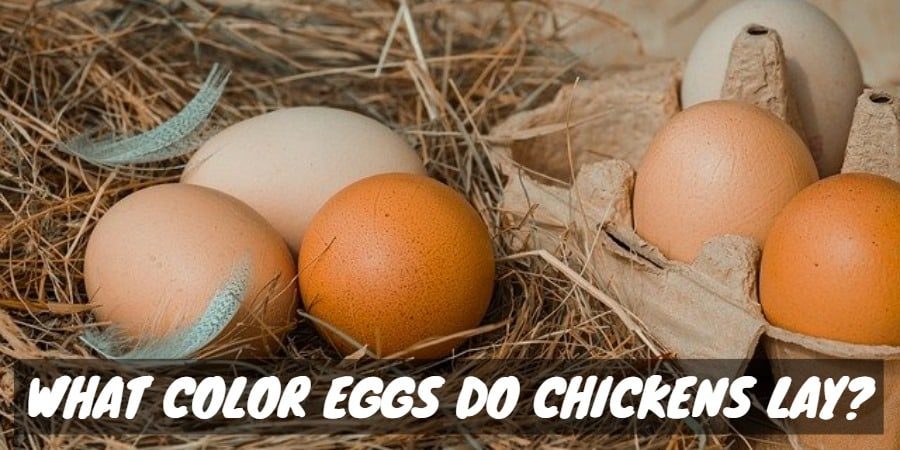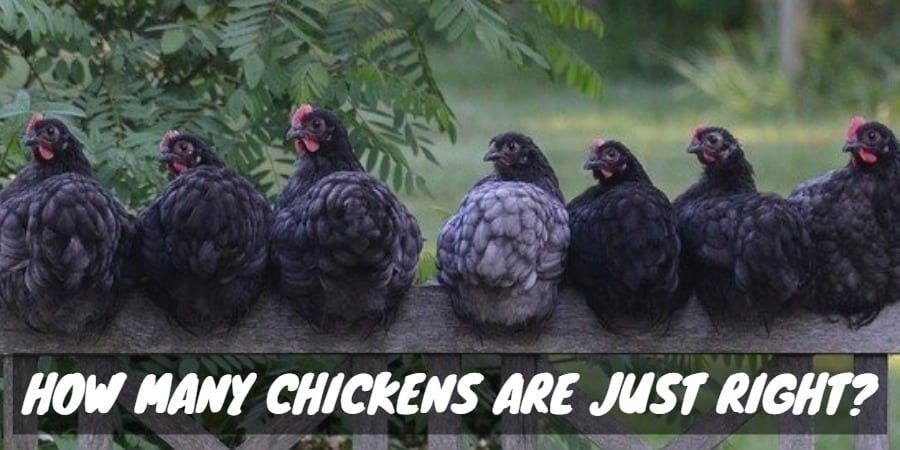One of the most common questions that gets asked about chickens is, why do they lay eggs even if there is no rooster present? Most birds tend to lay eggs only once or twice per year. For some reason, chickens break the mold and lay them every day. Let’s take a closer look and answer some of those frequently asked questions about chicken eggs.
Hens will lay one or more eggs every day until they collect what is known as a clutch (approximately a dozen eggs).
So, if you collect eggs every day, they will keep laying them because their goal is always to have a clutch of eggs.
Hens will lay that clutch and then sit on them whether they’re fertilized or not. In most cases, hens will lay their egg next to another, so you’ll catch them scooting another hen’s egg into a nesting box with their own egg.
[amazon bestseller=”chicken vitamins”]
Hens will choose the same nesting box to lay their eggs in. They will not swap back and forth since they want all of their eggs together. However, those who have a larger flock might find eggs all over the place. Smaller flocks are much easier to manage.

So to answer the question: Chickens lay unfertilized eggs because they are attempting to collect a clutch (approximately a dozen eggs).
In some cases, hens are bred to have long laying seasons so that they might lay a couple of hundred eggs in a single season. Breeds that have not been bred for laying might only lay a dozen eggs and only during a specific time of year. Chickens also need 10 hours of daylight to lay eggs consistently.
Most farmers allow their chickens to have the winter off. Chickens will not lay eggs without adequate lighting, so winter serves as a natural deterrent. You will have to provide artificial light to prompt them into laying eggs during winter.
Unfertilized Eggs Versus Fertilized Eggs
Many people in today’s world have been so far removed from their source of food that they have no idea where it comes from. Eggs are often misunderstood, with so many myths floating around them. Some people believe that all eggs are baby chickens just waiting to hatch. This is not even close to being the truth. As we already know, hens are going to lay eggs regardless of whether or not they are fertilized.
The main topic that we’re trying to answer here is, why chickens lay unfertilized eggs. This is not a simple question and will take a bit of time to explain. Let’s start with the biology of chickens.
Hens will lay eggs starting around the 16th week of their life. Just like humans, a chicken is born with all of the eggs she will ever have. So there is always a limit to how many eggs a hen can lay in her lifetime. When a rooster mates with a hen, the eggs will become fertilized.
Roosters Are Not Necessary for the Production of Eggs

Eggs are going to be produced whether or not there are roosters present. Releasing eggs is not regulated by males. But eggs that are laid without a rooster present are unfertilized. They do not contain a baby chicken waiting to hatch.
[amazon bestseller=”chicken worms”]
Light is what causes this process to take place, which is why 10 hours of light prompts the egg laying process.
Will Hens Still Brood Unfertilized Eggs?
We do not want our hens to brood her eggs unless we are purposely breeding them. That’s why most commercial hatcheries have developed breeds of hens that will not brood. She will just lay her egg and walk away. So the answer to this question depends on the breed you buy. The chances are that if you invested in an egg-laying hen, then she is not going to brood. She will keep laying eggs until her body runs out of cells to produce them.
How Do Chicks Develop in Eggs?
Hens that have mated within one week of laying an egg are almost guaranteed to lay fertilized eggs.
Is this bad if you are eating those eggs?
Not at all!
Fertilized eggs will look and taste exactly like normal eggs as long as you are collecting them daily. An egg needs to be kept in perfect conditions for it to develop into a chick. It will have to be 100 degrees with 60% humidity for several hours. Even then, the development would be so slight that it would almost be unnoticeable.
It takes approximately 3-4 days for an egg to start showing veining when kept at the proper conditions. Even if you forget to collect eggs, unless a hen if sitting on them (or it’s a hot day), then they are not going to develop. Also, the development of eggs stops immediately when you put them in the refrigerator.
Keep in mind that it takes three weeks for a chick to develop and hatch.
Can You Tell a Difference Between Fertilized and Unfertilized Eggs?

There is very little difference other than that a fertilized egg can develop. Until that development occurs, there is no difference in taste or nutrition. There is only one tiny visual difference – that small white dot on the yolk will have a ring around it.
There are several factors that many people mistake for fertilization but these do not indicate fertility.
These are:
Red Spots: Red spots are just broken blood vessels and it does not mean that the egg is fertile. The earliest bird development in an egg is veining, not spotting.
White Strings: Some people call this an umbilical cord. It’s not. It’s called a chalaza and is there to keep the yolk suspended so that it doesn’t smash itself against the shell. This feature is more prominent in farm eggs because eggs that age see this chalaza dissolve. Store-bought eggs are aged way longer than farm eggs.
As we’ve already seen, hens will continue to lay eggs regardless of whether or not they have a mate. This is quite a confusing concept that confounds so many people. But when you stop and think about it, eggs in all species are produced without fertilization. Those eggs then wait for fertilization. The difference is that chickens will actually lay the eggs into a nest even when they are unfertilized.
Why Do Chickens Lay Unfertilized Eggs?

So now that we understand the basics behind egg-laying in chickens, let’s address the overall question here. Humans have been raising chickens for centuries. In that time, we have gotten quite good at learning exactly what to do to ensure they are laying eggs for us to eat.
One of the differences that we’ve seen is breeding. We are now breeding chickens so that they do not stop egglaying during the winter. We also know that if we keep taking these eggs away from chickens by collecting them daily, then hens will lay more eggs.
The basic process for creating offspring is almost identical in every species on the planet. Females produce an egg, and males produce sperm. These two things have to combine to create an embryo. There are only a few exceptions to this biological fact.
With mammals, offspring grows inside of the body until it is born. With birds like chickens, those eggs are fertilized in the body and then released. They are then nested until they hatch.
Hens have to be cautious about how they use their egg cells because they only have a finite amount of them. Most animals will only use one egg per month, but birds tend to release a lot of eggs in the hopes of making a lot of babies with just one mating. This is why chickens lay in clutches.
Once a hen has around 12 eggs, it will stop laying and sit on those eggs until they hatch. However, if we keep taking these eggs away from her, then she will keep laying.
Hens don’t know whether a male is fertilizing the eggs. They just lay them regardless in hopes that it will get fertilized.
Another factor to keep in mind is the season. Nature prompts chickens to stop laying eggs during the winter. Hens want to ensure that chicks do not arrive during the cold weather when it’s more difficult to find food. But we have learned to breed chickens in a way that they lay eggs all year (with artificial lighting).
[amazon bestseller=”fluorescent lamp”]
Conclusion
Chickens are biologically programmed to lay as many eggs as possible during specified times. This gives them the greatest chance of having their eggs fertilized. But they will stop laying once they achieve their ultimate goal – a clutch of approximately 12 eggs.





Really cool article! I’m really learning a lot about chickens from this site!
I enjoyed your article and it has answered most of my questions. However, I don’t understand when you say the chicken doesn’t know if the eggs been Fertilized or not… but she must know if a cockerel has been with her. Why doesn’t she only lay in those situations and if no cockerel then keep the egg inside her body until one comes along?